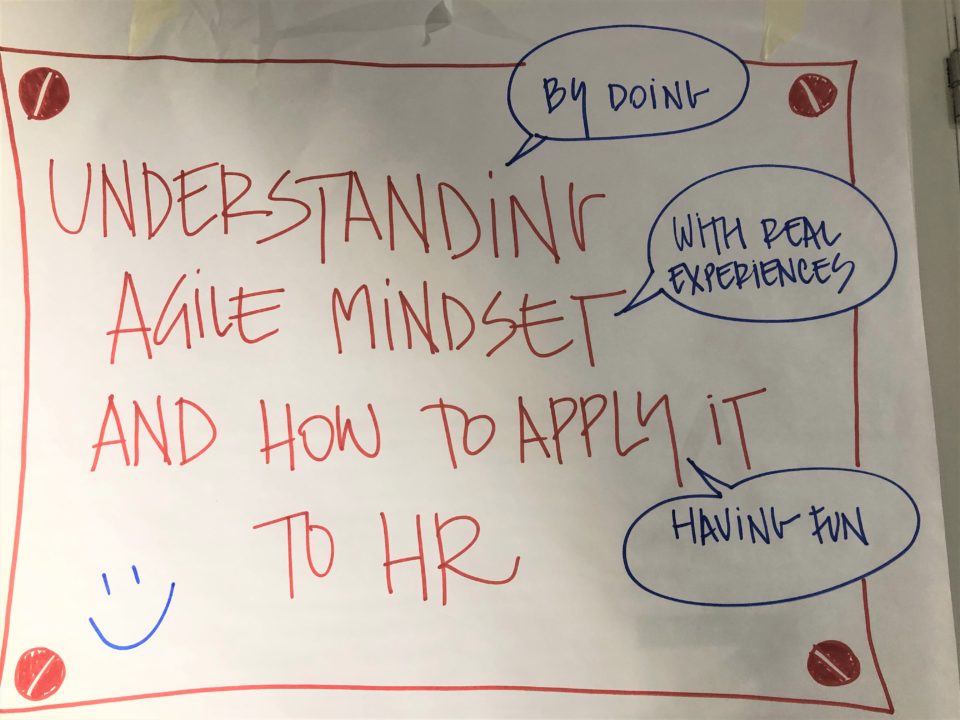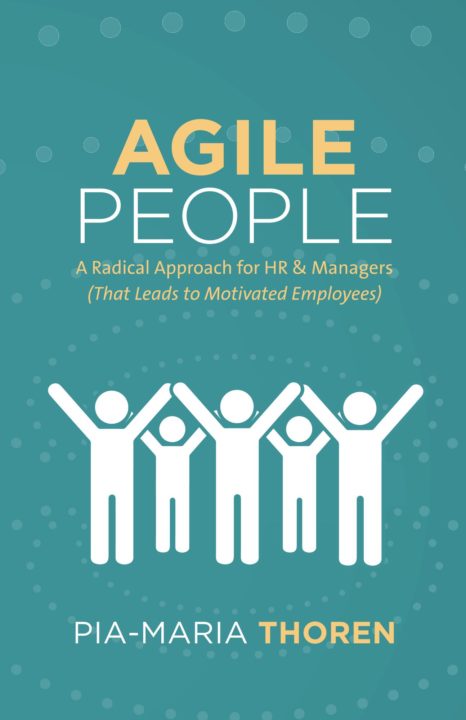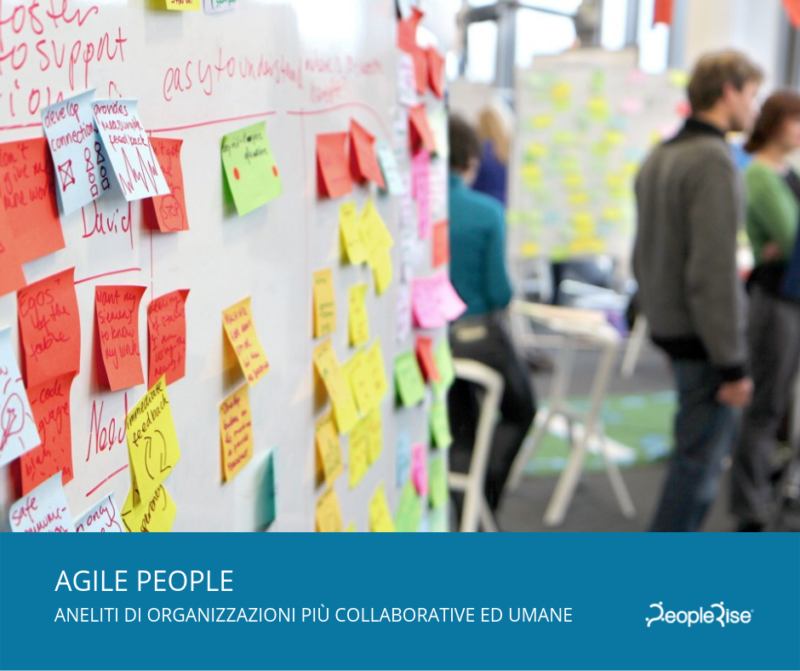On 15 and 16 April, we organised a workshop on Agile People in conjunction with Pia-Maria Thoren, a well-known Swedish consultant in the field of Agile and its application in the field of people, who has important collaborations such as Ikea, Volvo, and ING to her name.
As Peoplerise, we are looking with great interest at the Agile approach, because it resonates with our vision of the horizontal organisation: a place where you can develop independence and responsibility, to create companies that are better suited to today’s challenges. As such, we have worked hard in recent years to develop approaches and processes that facilitate the development of the skills needed to “feel” and process the adaptive pressures of the volatile, uncertain, complex and ambiguous time we live in. However, we immediately realised that what is outlined as a result of these paths of discovery is so innovative that the usual management methods do not allow for it to be expressed adequately. The result is a strong impulse for a fully-fledged reinvention of organisations.

This is why Agile has quickly become mainstream, because even compared to management methods which may well be more complete and potentially more appropriate, such as Teal, Holacracy, M3.0 and Sociocracy 3.0, it fits into the current paradigm in a simple way, respects its strain and can germinate, without major rejection reactions. I therefore see it as a possible bridge between today and the near future.
The principles of the Agile methodology are inspired by authenticity and simplicity:
- People and interactions are more important than processes and tools;
- It is more important to have a system that works, rather than its formalisation;
- Direct and informal collaboration offers better results than formal and contractual relationships;
- You must always be prepared to respond to changes, even by questioning what has been carefully planned.
Born in the world of software of the 1990s and culminating in its crystallisation in the 2001 manifesto, Agile has gradually stripped away its technological connotations to embrace the most diverse range of experiments, finally becoming the adjective that symbolises all that is alternative to the more traditional waterfall modes.
Agile is a shared language that people can adopt and make their own to generate more cohesive, communicative and collaborative working teams, lead managers out of their comfort zone, support decision-makers in businesses to have greater confidence with a more fluid and flexible vision, and motivate individuals to get involved in their work in a more passionate way. But in particular, this mindset, this new cultural approach, has exponential possibilities if the people in organisations who have the task of monitoring and encouraging people’s individual development have the curiosity to assess it and understand its potential.
Pia-Maria Thoren has filled her book Agile People – which Peoplerise has chosen to edit and translate and which will be in Italian bookshops in a few months, thanks to Guerini Next – with all her experience as a pure Agile coach and all her desire to positively influence the company function that can become the most powerful and transversal change agent in organisations: the people function. In fact, in many organisations the world of people is still a function which is entangled in the vestiges of trade union management, imposed by the great crisis of the last 15 years and still struggling to find a language and methods which are suitable for addressing the requests being made by the main stakeholders of the relaunch.

Agile People wishes to talk to these professional figures, proposing new and courageous roots to inspire them, and precisely because the leap is huge, a series of cases and new ways to become more activists than managers, the sponsors of this transition to more agile and therefore more resilient organisations.
“The ability to adapt to a changing world,” says Pia-Maria in her book, “is what allows some species to survive even the most terrible environmental changes. The same goes for our organisations. The future belongs to the companies that undertake the journey by adapting to the environment and unlocking their employees’ potential. We will survive by actively choosing to adapt. And choosing to adapt is at the heart of the Agile philosophy.”
For further information, here is an interview with Pia-Maria Thoren conducted by the Agile Business Consortium.


